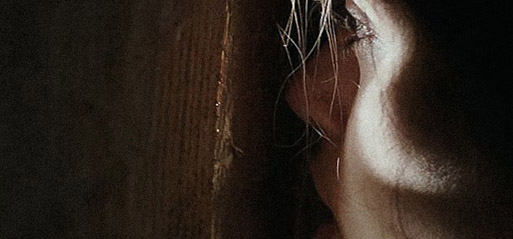
Still: TaleBox/Netflix
The art of filmmaking is to reduce the space between the action and the audience. In achieving this, the director allows the audience to enter into his or her mind, anticipating, experiencing, sharing and ultimately understanding what he/she wants to convey to the audience. Ultimately, it is about the story, the techniques and cinematic devices used to carry the narrative and, after the end, the message that will linger in the minds of the audience.
That distance between the director’s creation and the audience is a sensory terrain of political, racial, religious, economic, comedic, sporting, cultural, sexual, and historic subtexts, enabling the director to use this broad canvass to shape, manipulate and coerce the audience towards a particular end.
The attendant audience is taken on a particular journey, either being moved by or rejecting the subliminal construct of the end-product.
Farha is a harrowing vignette of the foundational days of Zionist ethnic cleansing of Palestine, seen and experienced through the eyes of a teenage Palestinian girl. It is a microcosm of the relentless daily killings of Palestinians, stretching back to the original betrayal and capitulation of the British to the Zionist project.
It is a chilling glimpse into the systematic genocide of Palestinians, replicated in every Arab town, village, and community. In one single episode of a family execution, it uncovers the sheer infamy and barbarity of the pogroms against Palestinians.
Jordanian director and writer, Darin Sallam, guides the audience into experiencing the unfolding horrors first through the eyes of the title character, Farha, who sees her traitorous father witnessing Jewish militants’ atrocities, who in turn are observers and willing executioners of Palestinians.
The story subliminally moves the audience to immerse psychologically and emotionally with the film’s main characters. Sallam impels the audience to be witnesses to history and to affirm the unescapable truth that Israel is a racist, apartheid state, borne out of the mass executions of the Indigenous Palestinian people.
Every aspect of the film—the sounds, the cinematography, the imagined, the implied and the dialogue—work together to tell the story in the most chillingly memorable way.
As Jewish militants begin ethnically cleansing Palestinian towns and neighbourhoods in 1948, in a small village, Farha is hidden away by her father in an outside food storeroom. She is able to hear the sounds of bombs and gunfire, and is only able to get a glimpse of the courtyard through a small gap in the storeroom’s wall. As the film moves agonisingly towards its most unbearable moment of horror, a single frame, sounds of gunfire, dead on the ground —captures not how the family died, but why they died.
Palestine has, in large part, been ignored by Hollywood, and even when it does turn its cameras to the Palestinians, it is through the lens of terrorism with a decidedly unsubtle pro-Israeli slant. Leading Hollywood directors have given Palestine a wide berth, fearing that any proffered sympathy for Palestinians could lead to an abrupt end to their careers. The default position has always been Israel, right or wrong.
For the late film critic Roger Ebert, “the movies are like machines that generate empathy. If it’s a great movie, it lets you understand a little bit more about what it’s like to be a different gender, a different race, a different age, a different economic class, a different nationality, a different profession, different hopes, aspirations, dreams and fears. It helps us to identify with the people who are sharing this journey with us.
And that, to me, is the most noble thing that a good movie can do, and it’s a reason to encourage them and to support them and to go to them.”
Sallam connects every scene and character to one’s humanity and inhumanity. The film weaves truths, subliminal and explicit, into the emotional, visual, and moral fabric of the story that connects the audience to the present through the lens of the past.
While the film ends with seeming despair as Farha barely survives the horror of the Nakba, its triumph is not in the survival of the teenager, but it lies in the moral obligation that Sallam places on the audience, not only to be witnesses for Palestinians, but to ensure that the memory of millions of Farhas will never be extinguished or smothered.
The late South African poet and writer, Umarrudin ‘Don’ Mattera reminds us that oppressed people may be “covered by the dust of defeat – or so the conquerors believed. But there is nothing that can be hidden from the mind. Nothing that memory cannot reach or touch or call back. Memory is a weapon.”
In Farha, Darin Sallam has given us a brilliant, powerful, and moving elegy to the memory of millions of Palestinians. It is a timely antidote to the genocide apologia offered by Hollywood and other pro-Israeli media. Farha is a reminder that the ongoing occupation of Palestine is rooted in rabid violence and brutality, spawned through decades of colonial settler savagery and malevolence. It helps us to identify with the Palestinians who are sharing their journey with us.
Mahomed Faizal
READ MORE
EDITORIAL: Seminal moment exposing the great tragedy of the Palestinian Nakba